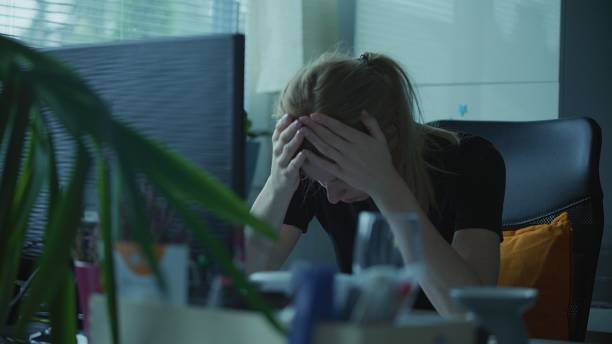Hello? Lets talk about something that is the talk of the town this days, how to balance work with one’s mental health. We just entered a new year, and in few years time the world will turned out to be so different than what we are experiencing now. It will no longer be a new thing working from home. And before then Ai might become our colleague, and somehow that line between “work” and “life” seems more clear. But here is the thing: even while work changed, what will not change is our need For mental health because they are more important. And now, the million-dollar question: how to be sane and productive in the ever-more technological world. Below are some actionable tips for you. Look into the advantage that such a balance brings and find the answers to each one of these burning questions one by one. So, with all said, let’s get it straight: it is not going to be your Sunday sermon, but rather your coffee time chat-chat, it will not be boring so lets get started!!
Table of contents
Why Balance Work and Mental Health in 2025?
We’re going to start first with the “why” instead of the “how.” Now, why bother balancing your work with your mental health? Well, for one thing: burnout’s real. Before the end of 2025, we might be highly connected; and you also need to understand that the goal is not to overwork. The notifications will keep coming in demands for our services , might increase. And if you are not careful it will affect your mental health. But here is the good news: by looking after your mental health, you are not only doing yourself but also boost your productivity, creativity, and job satisfaction. It’s a win-win situation for yourself.
How to Balance Work and Mental Health
Now, down to brass tacks-some battle-tested strategies that really works. The following tips are not general but tailor-made for the modern work environment.
1. Setting Limits with Technology
We already live in a generation where technology abounds=voice assistants, Ai tools and virtual meetings. I know you can work 24/7 but because of your mental health please don’t. Switch off all notifications after work hours. Seriously, your brain needs that. Make places tech-free; use tools like “Focus Mode” or “Do Not Disturb.” Pencil in “no-screen” time: an hour before bed or that weekend morning, give your eyes and mind a rest. Let AI work for you-let all the boredom fall upon the bots while you spend your precious time on something really important.
2. Tap into the Magic of Micro-Breaks
Gone are those days of toiling for many hours without batting an eyelid. In 2025, it’s the shorter and frequent breaks that keep us focused, away from stress. Make use of the 20-5 rule: You work for 20 minutes and then take off for 5 minutes. Get your body moving and breathe or take that glass of water. Insert mindfulness moments. Actually, on-the-go apps like Calm or Headspace you can have have brief 2-minute meditations reset the mind.
3. Redefining Productivity
Being productive in the year 2025 doesn’t mean longer work hours; being productive means with your brain, not burning out your buns. It’s about the output and not about time. You said you’re going to get that done; well, it’s done!! what next? Let deep work in: Block time for tasks that take all your concentration and set distraction aside. Recognize small wins; pamper yourself after finishing a report or send in that email.
4. Friendly Work Environment Set-Up
Let that be hybrid work-from-home surroundings; every inch is prime importance to keep up the mental psyche. Communicate with your team: if you’re overwhelmed, say something. Don’t be too hard on yourself. Set up a real workspace. Many times, even the corner of your living room can save you from psychological stress at the end of the day. Nurture relationships with others: One can make it a habit of taking coffee breaks in intervals after meeting, after sending those hectic mails. Banish the idea of isolation during work hours.
5. Invest in your well-being:
Self-care is not a bad thing; actually, it is necessary. The understanding of self-care has really expanded beyond just the bubble bath or face masks. Get moving: yoga session, walk around the block, dance break-physical activity is a game-changer in every regard when it involves mental health. Eat to nourish: put foods in your body that give energy and focus. Sleep like it is your job. Seriously, sleep is not up for negotiation. Sleep 7-9 hours a night.
6. Seek Professional Help
When Needed Nothing is wrong with seeking help, resources for mental health are very available. Virtual therapy has saved so many lives, and some have made it quite easy through BetterHelp and Talkspace. It is available for any person within their comfort zone, there are approachable licensed therapists. Employee Assistance Programs: Organizations offering free, confidential support for mental health issues-related concerns for employees.
Benefits of Balancing Work and Mental Health
The benefits of keeping yourself healthy is unlimited, because as you already know health is wealth. Taking care of yourself should be primary focus for diverse reasons. Improved focus and productivity: A well mind focuses a lot. Better relationships: once you have better mental health, then you will have improved relationships. This simple means when you are not stressing yourself too much you will have enough time to spend with the people around you. More Joy to work: A good health is the real motivation, if you have your health in check you will have peace and joy to boost productivity.
Case Study
Let’s bring this topic to life with a real-world example. Meet Sarah, a 32-year-old marketing manager at a fast-growing tech startup. Sarah’s story is one many of us can relate to, especially in this era, where the pace of work feels faster than ever. Sarah loved her job. She thrived on the fast-paced environment, the creative challenges, and the opportunity to work with cutting-edge technology. However she started noticing some red flags: She was constantly tired, her productivity was slipping, and she found it hard to focus, Small tasks felt overwhelming, and she dreaded opening her laptop every morning. Sarah realized she was on the brink of burnout. She knew something had to change, but she wasn’t sure where to start. One day, Sarah had a panic attack during a virtual team meeting. She excused herself, turned off her camera, and sat on the floor, trying to catch her breath. That was her wake-up call. She realized she couldn’t keep going like this her mental health was suffering, and it was affecting every aspect of her life. Sarah decided to take action. She reached out to her manager, who was surprisingly supportive. Together, they came up with a plan to help Sarah regain her balance. Sarah realized she was checking emails and Slack messages at all hours, even on weekends. She decided to set strict boundaries: Sarah used to power through her workday without stopping, but she learned that short breaks actually made her more productive. She started using the 20-5 rule: Sarah’s story isn’t unique. Many of us struggle to balance work and mental health, especially in a world that never seems to slow down. But her experience shows that change is possible.
Most asked questions.
1. When would I know that I am burning out? Burnout creeps up. Watch out for the signs: you feel continuously tired, irritable, unable to focus, lack motivation. Perhaps that is a good time to step back and reevaluate your balance between work and life. 2. Suppose the workplace is unsupportive about mental health? In other words, if your workplace doesn’t underline mental well-being, then that’s something which needs correction right from the root. So fix the boundaries now, speak about yourself, or seek outside help if needed; remember, always put yourself first. 3. How to feel connected working remote? You will easily feel isolated when you are not at the office. Try your best to connect with colleagues through virtual meetings, chat platforms, or even old-fashioned phone calls. Don’t forget to nurture your relationship outside of work. 4. Is it okay to take a mental health day? Yes it’s very okay to take a day out specifically for your mental health. Mental health days are as important as sick days. Use that time to recharge, reset, and come back stronger. 5. How does a working parent maintain good mental health? Parenting today is a nightmare job; it has grown very complicated with today’s world of working. Learn to lean on your support, talk about needs to employers, and that help may be extended or accepted accordingly.
Conclusion
This is not about perfection; this is progress toward finding that elusive work-life balance. It’s about being human-which might limits your needs, but hat’s quite okay. Just make sure you set boundaries, take care of yourself, and ask for help when needed so that you will thrive both in work and and normal life. So, how does that feel now you’ve read this? Overwhelmed? Inspired? Hopeful? Whatever it is, take a deep breath and remember: you got this. And if you ever need reminding, well, just pop back to this guide. Let’s make 2025 the year we finally get this right-together. References
- World Health Organization (WHO) – Mental Health in the Workplace
- Harvard Business Review – The Future of Work in 2025
- American Psychological Association (APA) – Tips for Managing Stress
- Calm and Headspace Apps – Mindfulness and Meditation Resources
Hot Trends






